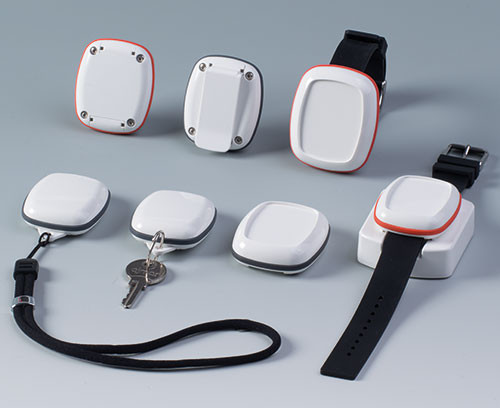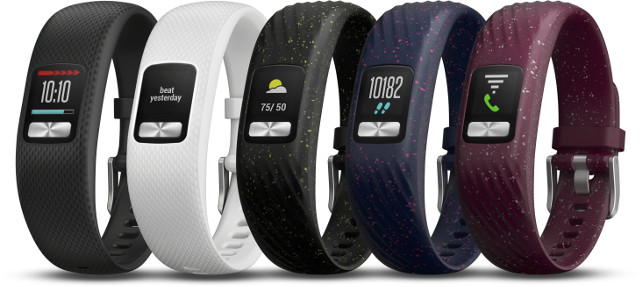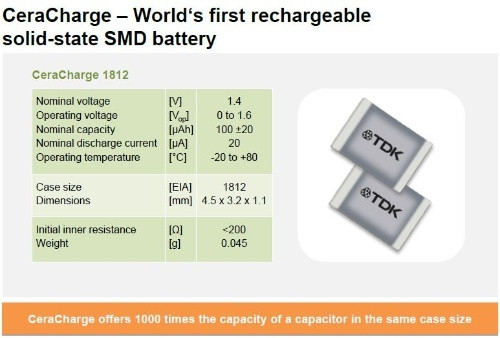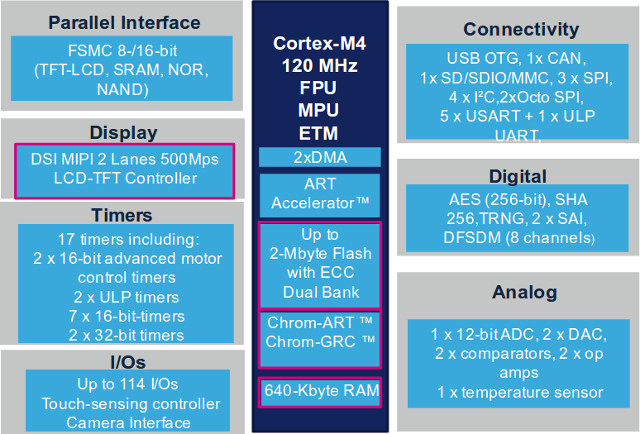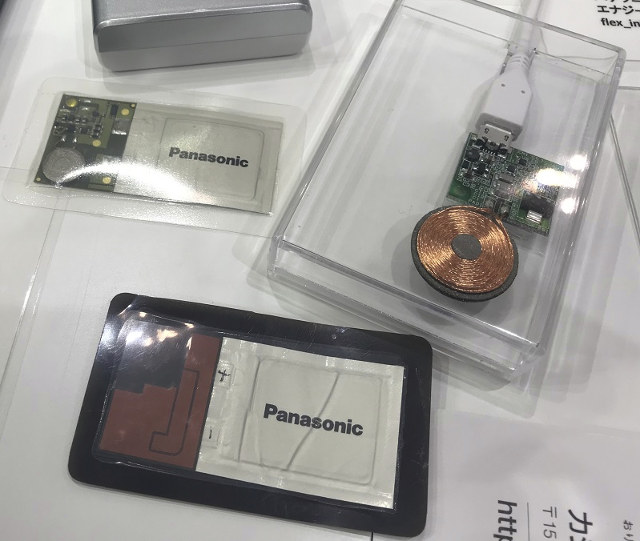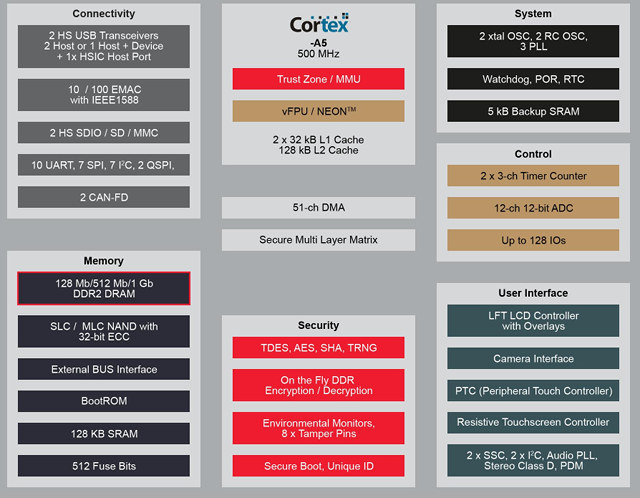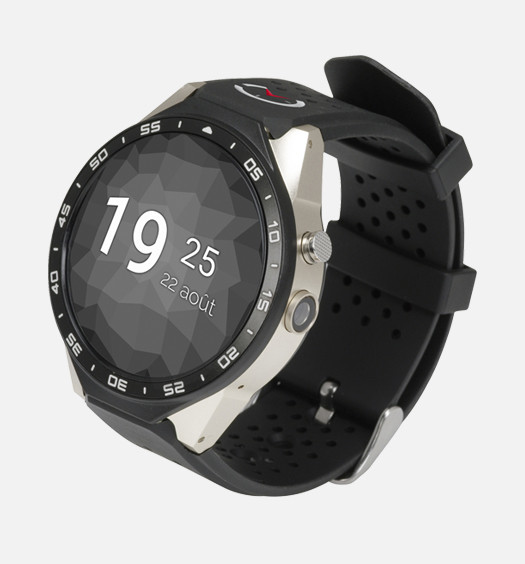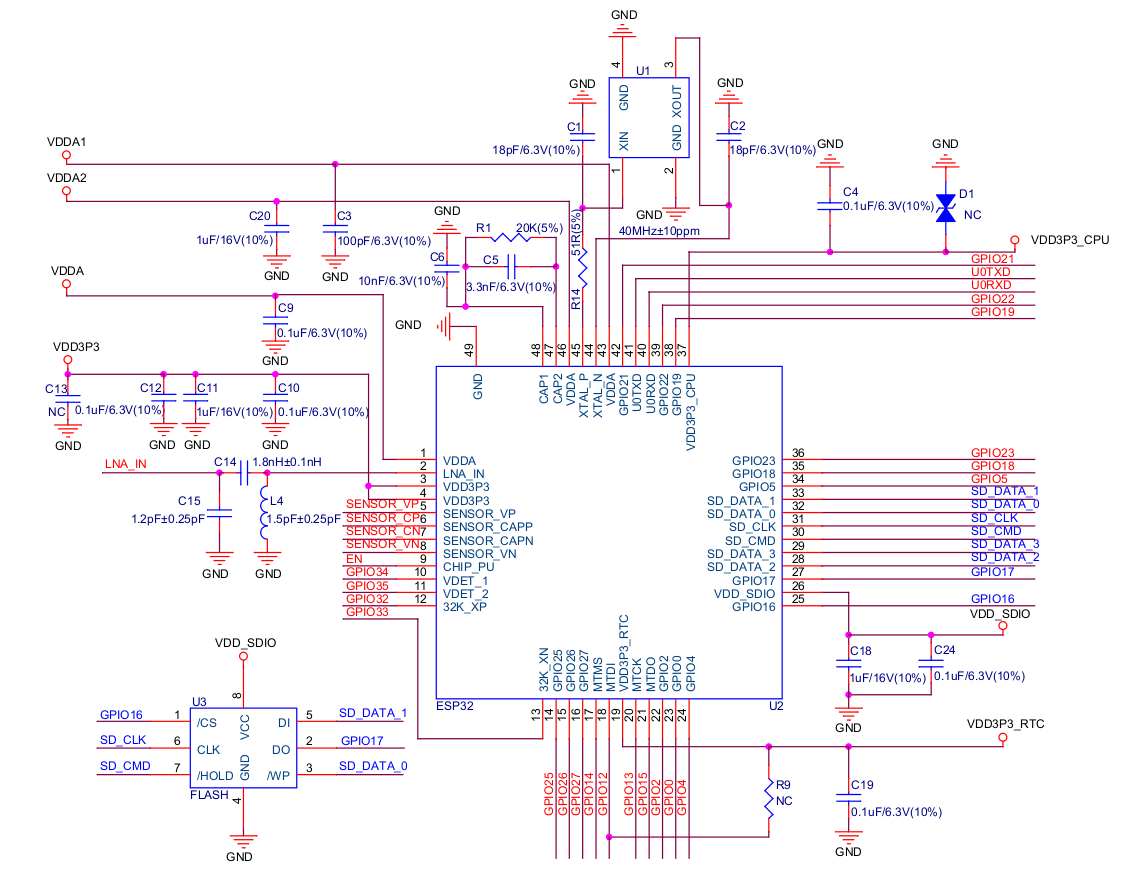You may have worked on a battery powered wearable or IoT projects, and the hardware and software are mostly ready, but you’ve yet to find a good way to package it to make it easily wearable, and protect it from the elements. OKW body case could be one way, as it can be used around your arm like a wrist watch, as a key ring attachment, clipped to your trousers or T-shirt, carried around your neck. The case has been moulded in ASA plastic with a high UV protection, includes a TPV sealing ring to ensure IP65/IP67 water & dust proofness, and is assembled with four stainless stell screws using a Torx drive. The company provides two sizes (Large: 55 x 46 x 17 mm, or Medium: 50 x 41 x 16 mm) and claims easy operation with the help of push buttons or touchscreens, although I’d assume water / dust resistance […]
Garmin Launches Vivofit 4 Activity Tracker with One Year Battery Life
I have not spent much time covering wearables like smartwatches and fitness trackers this year, mostly because I find they have too many flaws at this stage. Back in 2016, I found many had a short life time, they would just stop working after a few weeks or months, even the fairly popular Xiaomi Mi Band 2 only lasted 2 months after an ill-fated firmware upgrade. In my case, I also found activity / fitness trackers did not have the motivating factor I thought they’d have, so I don’t think I exercise more or less with one. Finally, another annoyance is that most need to be charged every couple of days or weeks, and I’m frequently leaving the one I’m still using (SH09) run out of battery, losing recent data. The best solution to address the latter issue would be some type of energy harvesting, so that we would never […]
TDK CeraCharge Solid State Battery-in-a-Chip is Designed for IoT & Wearables
We’ve recently seen solid state batteries are prone to dislodge current Lithium Ion battery technology as they are safer, support higher energy density, and faster charging. Such batteries are expected to be seen in car in the first part of the next decade, in smartphones starting possibly in 2019, but TDK has just announced their own CeraCharge rechargeable solid state SMD battery with mass production scheduled to start in April 2018. TDK CeraCharge battery-in-a-chip will come in compact EIA 1812 package (4.5 x 3.2 x 1.1 mm), offer a capacity of 100 µAh at a rated voltage of 1.4 V, and can be recharged up to 1000 times. Potential applications include IoT devices, real-time clocks, Bluetooth beacons, and systems for energy harvesting. The battery – which will look very similar to an SMD capacitor – does not include liquid electrolyte, and instead uses a solid ceramic element as electrolyte which rules out any risk of fire, explosion, […]
STMicro Introduces Ultra-efficient STM32L4+ Series MCUs with Better Performance, Chrom-GRC Graphics Controller
STMicroelectronics has announced an upgrade to their STM32L4 series Cortex-M4 micro-controllers with STM32L4+ series upping the maximum frequency from 80 MHz to 120 MHz delivering up to 150 DMIPS (233 ULPMark-CP) , and ultra low power consumption as long as 33 nA in shutdown mode without RTC. The new family also adds Chrom-GRC graphics controller (GFXMMU) that can handle both circular and square TFT LCD displays together with a MIPI DSI interface and displayer controller, making it ideal for wearables, Chrom-ART 2D accelerator for better graphics performance, two Octo SPI interfaces, and more memory (640KB max) and storage (up to 2MB flash). If you want to know all differences between STM32L4 and STM32L4+, and/or learn how to use peripherals, STMicro has setup a nice free STM32L4+ online training page, which allow you to do just that either by downloading PDF documents, or following e-Presentations with slides and audio. STM32L4+ appears […]
Panasonic Showcases Flexible Batteries with Wireless Charging System
Flexible batteries such as PowerStream lithium polymer batteries can be integrated into new application such as smartcards, and could help wearables have longer battery life by adding batteries into clothes, wristbands or chestbands for example. You’d still need to charge them however, and in some cases adding a USB port (micro USB or type C) may negate the benefit of having a thin flexible battery, but Panasonic has a solution as the company added wireless charging capability to their flexible batteries. The solutions showcased at Ceatec Japan 2017 on October 3-6, 2017 were flexible lithium-ion rechargeable batteries with 0.45mm thickness, and 18, 42 and 65mAh capacity. Battery voltage is 3.8V, charging voltage 4.35V, and the batteries can be bend up to a radius of 25 mm, and twisted by up 25°. Such batteries are meant to be attached to human body and clothes for medical and health management applications, or […]
SAMA5D2 Based SiPs Combine ARM Cortex-A5 Processor With Up to 128MB DDR2
Atmel SAMA5D2 ARM Cortex-A5 processor was released about two years ago with extended temperature range and lower power consumption compared to previous SAMAD5 processors, with the new SoC still targeting industrial Internet of Things (IIoT), wearables and point of sale applications. In recent years, we’ve seen companies packing main components into systems-in-package (SiP) with products such as Octavo Systems OSD3358 and Espressif Systems ESP32-PICO-D4 with integrate an existing processor with memory, storage, and/or PMIC. Microchip (previously Atmel) has now done the same for their SAMA5D2 processors with SiPs combining the Cortex A5 SoC with DDR2 memory. Four SAMA5D2 SiPs have been launched: ATSAMA5D225C-D1M based on ATSAMA5D22C MPU with extra SD/SDIO, QSPI, FLEXCOMs (2x), I2S, and timers (2x) and: 128 Mb (16 MB) DDR2 DRAM 90 Peripheral I/Os 196 BGA Package Designed for RTOS/bare metal development ATSAMA5D27C-D5M based on ATSAMA5D27C MPU with: 512 Mb (64 MB) DDR2 DRAM 128 Peripheral I/Os […]
Connect Watch Runs AsteroidOS Open Source Operating System (Crowdfunding)
At the beginning of last year, we discovered AsteroidOS (hobby) project aiming to provide a Linux based open source operating system working on some Android Wear smartwatches. At the time the OS relied on Android drivers working with libhybris, Qt5/QML for apps, and only supported LG G Watch. Since then, Florent Revest has continued development, with more watches being supported from Samsung, Asus, and other brands, and a French startup has decided to design and bring to market Connect Watch running AsteroidOS. Connect Watch specifications: SoC- Mediatek quad core processeur @ up to 1.39GHz MTK System Memory – 512MB or 1GB RAM Storage – 4 or 8GB flash Display – 1.39″ round Amoled display with 400×400 resolution Audio – Built-in speaker Connectivity Bluetooth Optional GSM ( 850/900/1800/1900MHz) and 3G WCDMA (850/2100MHz) support with nano SIM card slot GPS Camera – 2.0 MP; records to 720p Sensors – Heart rate monitor […]
ESP32-PICO-D4 System-in-Package Combines ESP32, 4MB SPI Flash, a Crystal Oscillator, and Passive Components
Espressif Systems has revealed another ESP32 variant, but this time it’s not an SoC, but a 7x7mm system-in-package (SIP) that comes ESP32 dual core processor, a 4MB SPI flash, a crystal oscillator and various passive components, so that you don’t need to include those in your design, and create an ultra-compact PCB for wearables and other space-constrained applications. ESP32-PICO-D4 SiP specifications: SoC – ESP32 with two Tensilica LX6 cores, 448 KB ROM, 520 KB SRAM (inc. 8KB RTC memory), 1kbit eFuse On-module Flash – 4MB SPI flash Connectivity WiFi – 802.11 b/g/n/e/i (802.11n up to 150 Mbps) Bluetooth – Bluetooth V4.2 BR/EDR and BLE specification; ; class-1, class-2 and class-3 transmitter; Audio: CVSD and SBC SIP Interfaces SD card, UART, SPI, SDIO, LED PWM, Motor PWM, I2S, I2C, IR GPIO, capacitive touch sensor, ADC, DAC, LNA pre-amplifier Sensors – On-chip Hall sensor & temperature sensor Clock – On-module 40 MHz crystal […]


